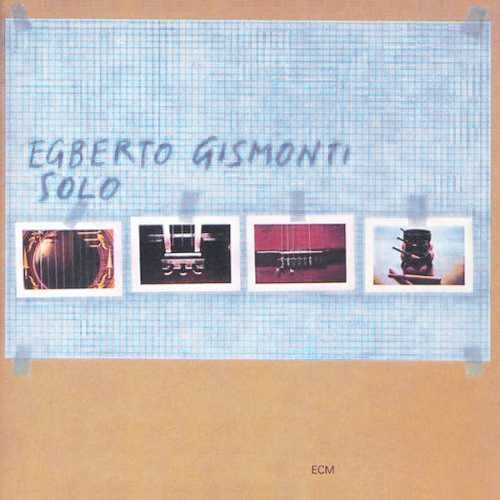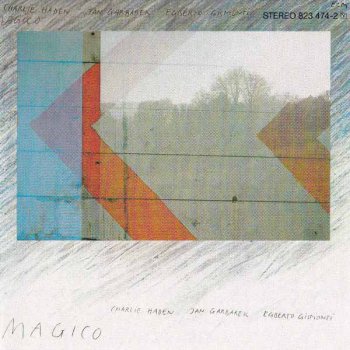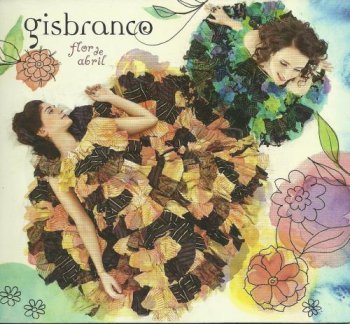The Creation: 2017 Creation Theory - 4CD + DVD Box Set Edsel Records
Lossless Galaxy Release The Creation: 2017 Creation Theory 4CD + DVD Box Set Edsel Records Performer: The Creation Box: 2017 Creation Theory (4CD + DVD Box Set Edsel Records) Info: Demon Music / Edsel Records Bam-Caruso Records / Cherry Red Records / Universal Music CD / DVD / Amazon Exclusive Limited Edition Numbered (limited to 500) № 127 Catalog Box / All Discs: CREATIONBOX01 Made in EU Dynamic Range: 8 / 8 / 9 / 10 Genre / Style: Rock / Mod Released Year: Apr 28, 2017 Format: CDs: FLAC /

The Creation: 2017 Creation Theory - 4CD + DVD Box Set Edsel Records
Lossless Galaxy Release The Creation: 2017 Creation Theory 4CD + DVD Box Set Edsel Records Performer: The Creation Box: 2017 Creation Theory (4CD + DVD Box Set Edsel Records) Info: Demon Music / Edsel Records Bam-Caruso Records / Cherry Red Records / Universal Music CD / DVD / Amazon Exclusive Limited Edition Numbered (limited to 500) № 127 Catalog Box / All Discs: CREATIONBOX01 Made in EU Dynamic Range: 8 / 8 / 9 / 10 Genre / Style: Rock / Mod Released Year: Apr 28, 2017 Format: CDs: FLAC /
13 10, 2025
Temple Of The Dog: 1991 Temple Of The Dog - 2CD + LP + DVD + Blu-ray Audio Super Deluxe Box Set A&M Records 2016
Lossless Galaxy Release Temple Of The Dog: 1991 Temple Of The Dog 2CD + LP + DVD + Blu-ray Super Deluxe Box Set A"> Performer: Temple Of The Dog Box / Album: 1991Temple Of The Dog (2CD + LP + DVD + Blu-ray Super Deluxe Box Set A"> Каждый альбом можно скачать отдельно Each album can be downloaded separately • • • • • • • • • • • • • • • • • • • • • • • • • • • • • • • • Upload: xFile.cloud (5% recovery)

Temple Of The Dog: 1991 Temple Of The Dog - 2CD + LP + DVD + Blu-ray Audio Super Deluxe Box Set A&M Records 2016
Lossless Galaxy Release Temple Of The Dog: 1991 Temple Of The Dog 2CD + LP + DVD + Blu-ray Super Deluxe Box Set A"> Performer: Temple Of The Dog Box / Album: 1991Temple Of The Dog (2CD + LP + DVD + Blu-ray Super Deluxe Box Set A"> Каждый альбом можно скачать отдельно Each album can be downloaded separately • • • • • • • • • • • • • • • • • • • • • • • • • • • • • • • • Upload: xFile.cloud (5% recovery)
13 10, 2025
SUPREME JAZZ «Series- SACD Collection» (16 × SACD • Membran Music Ltd. • 2006)
Collection: "SUPREME JAZZ" Artist: SONNY ROLLINS, DUKE ELLINGTON, BARNEY KESSEL, GERRY MULLIGAN, LESTER YOUNG, STAN GETZ, DIZZY GILLESPIE, DAVE BRUBECK, CHARLES MINGUS, CLARK TERRY, CANNONBALL ADDERLEY, OSCAR PETERSON, JOHN COLTRANE, SONNY CLARK TRIO, GROVER WASHINGTON, Jr. Series: SACD-Mastering Hommage Multimedia GmbH— Label: (c)(p) 2006 Membran International GmbH / Audio Fidelity / Sony Music Source: Rip by PS³SACD ⇒ Conversion DSD64 by KoGGaN™ scans by inet… Official DR value:

SUPREME JAZZ «Series- SACD Collection» (16 × SACD • Membran Music Ltd. • 2006)
Collection: "SUPREME JAZZ" Artist: SONNY ROLLINS, DUKE ELLINGTON, BARNEY KESSEL, GERRY MULLIGAN, LESTER YOUNG, STAN GETZ, DIZZY GILLESPIE, DAVE BRUBECK, CHARLES MINGUS, CLARK TERRY, CANNONBALL ADDERLEY, OSCAR PETERSON, JOHN COLTRANE, SONNY CLARK TRIO, GROVER WASHINGTON, Jr. Series: SACD-Mastering Hommage Multimedia GmbH— Label: (c)(p) 2006 Membran International GmbH / Audio Fidelity / Sony Music Source: Rip by PS³SACD ⇒ Conversion DSD64 by KoGGaN™ scans by inet… Official DR value:
13 10, 2025
Жанры
Lossless Galaxy Release
Русская музыка
--Поп
--Рок
--Панк
--Альтернатива
--Металл
--Рэп, Хип-Хоп, R'n'B
--Джаз и Блюз
--Фолк
--Шансон, Авторская песня
--СССР
Зарубежная музыка
--Pop
--Rock
--Hard Rock
--Progressive & Art-Rock
--Pop-Rock & Soft Rock
--Instrumental Rock
--Heavy, Traditional, Industrial Metal
--Power, Gothic, Sympho Metal
--Thrash, Speed, Groove, Modern Metal
--Death, Melodic Death, Doom, Dark Metal
--Black, Pagan, Folk, Viking Metal
--Alternative
--Punk
--Disco, Eurodance
--Rap, Hip Hop, R'n'B
--Reggae, Ska, Dub
--Jazz, Blues, Soul
--Folk, Country, Ethnic
--Electronic, Ambient, New Wave
--House, Techno, Trance
Другие жанры
--New Age, Relax, Meditative & Flamenco
--Chillout, Lounge, Downtempo, Trip-Hop
--Drum & Bass, Jungle, Breakbeat, IDM
--Classical / Классическая музыка
--Soundtrack
--Музыкальные сказки
Vinyl Rip
HI-Res / DVD-Audio / DTS
--SACD
--DSD
--DVD-Audio
Сборники Lossless-Galaxy
Альбомы 2022
Альбомы 2023
Альбомы 2024
Теги
1st Press 2022 2023 2024 2025 70... AOR Black Metal Blues Blues Rock Bootleg Series Classic Rock Death Metal Discography Exclusive for Lossless-Galaxy Folk Rock Fusion Hard Rock Heavy Metal Hi-Res Japanese Edition Jazz Jazz Rock lossless Melodic Death Metal Melodic Rock Modern Electric Blues Pop Pop Rock Power Metal Prog Rock Progressive Metal Progressive Rock Psych Rock Psychedelic Rock Rock SACD Symphonic Metal Thrash Metal Дискографии от KoGGaN
Архивы
Опрос
В каком формате хотели бы видеть релизы на сайте ?
 Автор: sirk, 15 февраля 2024, Комментариев: 0, Просмотров: 750
Автор: sirk, 15 февраля 2024, Комментариев: 0, Просмотров: 750Egberto Gismonti - Saudacoes [2CD] (2009)
Artist: Egberto Gismonti
Title Of Album: Saudacoes
Year Of Release: 2009
Label (Catalog#) : ECM [2082/83 - 1797280]
Country:: Brazil
Genre: Jazz, Avant-Garde, Classical, World Fusion
Quality: FLAC (*tracks + cue,log)
Bitrate: Lossless
Time: 02:25:41
Full Size: 975mb(+3%)(scans)
Title Of Album: Saudacoes
Year Of Release: 2009
Label (Catalog#) : ECM [2082/83 - 1797280]
Country:: Brazil
Genre: Jazz, Avant-Garde, Classical, World Fusion
Quality: FLAC (*tracks + cue,log)
Bitrate: Lossless
Time: 02:25:41
Full Size: 975mb(+3%)(scans)
Tracks:
-------
CD 1:
01.Sertoes Veredas I (13:31)
02.Sertoes Veredas II (12:35)
03.Sertoes Veredas III (09:04)
04.Sertoes Veredas IV (10:46)
05.Sertoes Veredas V (10:44)
06.Sertoes Veredas VI (09:56)
07.Sertoes Veredas VII Palhaco Na Caravela (08:56)
CD 2:
01.Lundu (04:03)
02.Mestico & Caboclo (13:05)
03.Dois Violoes (05:18)
04.Palhaco (06:53)
05.Danca Dos Escravos (08:14)
06.Chora Antonio (06:20)
07.Zig Zag (10:05)
08.Carmen (04:56)
09.Aguas & Danca (06:33)
10.Saudacoes (04:31)
Personnel:
---------
Egberto Gismonti: composer, guitars
Alexandre Gismonti: guitars
Camerata Romeu, Zenaida Romeu conducting
-------
CD 1:
01.Sertoes Veredas I (13:31)
02.Sertoes Veredas II (12:35)
03.Sertoes Veredas III (09:04)
04.Sertoes Veredas IV (10:46)
05.Sertoes Veredas V (10:44)
06.Sertoes Veredas VI (09:56)
07.Sertoes Veredas VII Palhaco Na Caravela (08:56)
CD 2:
01.Lundu (04:03)
02.Mestico & Caboclo (13:05)
03.Dois Violoes (05:18)
04.Palhaco (06:53)
05.Danca Dos Escravos (08:14)
06.Chora Antonio (06:20)
07.Zig Zag (10:05)
08.Carmen (04:56)
09.Aguas & Danca (06:33)
10.Saudacoes (04:31)
Personnel:
---------
Egberto Gismonti: composer, guitars
Alexandre Gismonti: guitars
Camerata Romeu, Zenaida Romeu conducting
Внимание! У Вас нет прав для просмотра скрытого текста.
Изменил: sirk по причине: RE-UP
Похожие новости:
Комментарии отсутствуют
Добавить комментарий!
Информация
Посетители, находящиеся в группе Гости, не могут оставлять комментарии к данной публикации.






